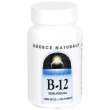What is Psoriasis?
Psoriasis is a common skin disorder that occurs when skin cells replicate too quickly. When this happens the skin starts producing new skin cells ten times it’s normal rate, but it still removes old skin cells at the regulate rate. This causes the new skin cells to pile up onto the under the surface of the skin.
This leads to patches of red and swollen skin, most commonly covered with silvery or whitish scales. Psoriasis can appear anywhere on the body but most frequently occurs on the knees, scalp, elbows, buttocks, the backs of the wrists. Psoriasis can affect the nails, causing stipples, and pitted areas along with a discoloration and thickening of the nail’s plates. Visit www.ifoundthecure.com for more info.
Who Gets Psoriasis?
Psoriasis comes and goes in cycles, and doesn’t usually leave any scarring behind. Doctors aren’t sure what the exact cause of Psoriasis is. The only conclusion that has held any weight is that it is a genetic flaw, and as such, adjusting your lifestyle may be the best option for you to handle your psoriasis.
What are the Symptoms of Psoriasis?
Psoriasis usually doesn’t itch, and if you do scratch the rash it most likely will bleed. Red inflamed patches of skin covered with silvery, or whitish scales as mentioned above are the telltale symptoms of Psoriasis. Dull distorted nails, and thick, dry skin in times of remission are also common.
What are the Root Causes of Psoriasis?
Genetics are the number one roots cause followed closely by a poor diet, low in essential fatty acids, difficulty digesting protein, and an overgrowth of candida. Poor liver function, stress, and hormonal changes have also been linked to Psoriasis. Certain medications, illness, or infection, stress, and even sunburn have also been noted as root causes of Psoriasis.
Natural Remedies.
Getting your protein from fish and vegetarian sources is a good place to start in diet modification. Increase the amount of fresh organic produce in your diet, and also your fiber intake. Avoid red meat, and milk. Many people with Psoriasis have a difficult time digesting these proteins. In some people reactions, or allergies to foods can bring on Psoriasis, so it is important to watch your diet, and note when your Psoriasis acts up as discussed in www.ifoundthecure.com
 | Hydrochloric Acid- Take 1- 3 capsules with each meal. This is help assist in digesting proteins. *Reduce your dosage if a warm or burning sensation occurs. |
 | Digestive Enzymes- Take 1 capsules with each meal. This will also help to digest proteins, but will help digest milk and dairy products as well. |
 | Essential Fatty Acids-Take as directed on the label. Fish oil is great for your skin, and has anti-inflammatory effects. |
 | Milk Thistle- Take 250 mg three times a day of a formula that contains 80 - 85% silymarin extract which is the ingredient in Milk Thistle that is so important. Milk Thistle is a great liver cleanser, detoxifier, and also helps to reduce cellular proliferation. |
 | Vitamin B 12- Take a sublingual B 12 400 - 800 mcg daily. |
 | Sarsaparilla- Take 500 mg three times a day. This herb will reduce the effects of bacterial toxins which aggravate Psoriasis. |
*Please check with your doctor before taking any supplements, and also read the warning labels on each product, especially if you are pregnant or breast-feeding. Also read the labels carefully when giving your child any natural supplement, to ensure that it is safe to give a child.

No comments:
Post a Comment